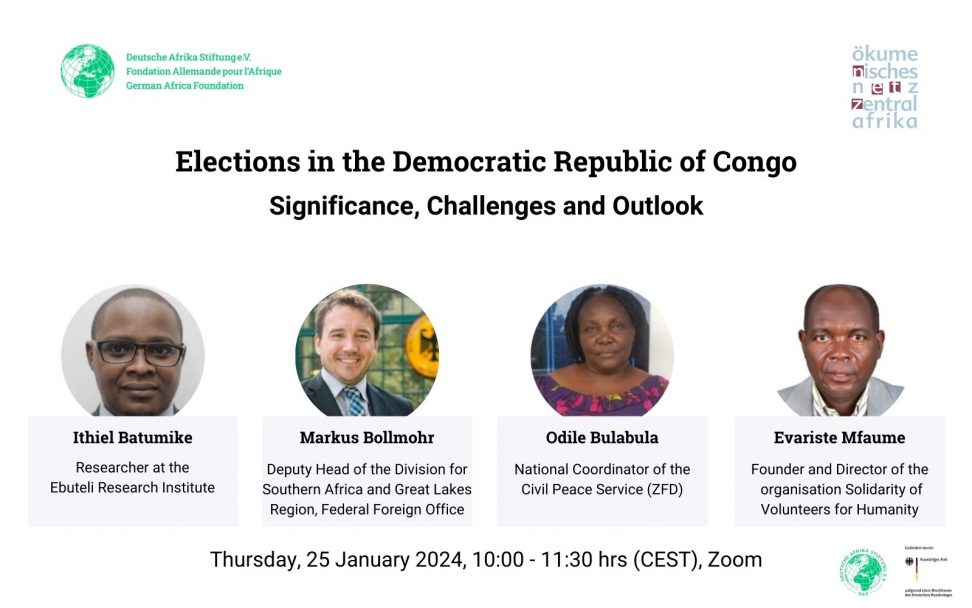General elections were held in the Democratic Republic of the Congo on 20 December 2023. While some of the official results of the parliamentary, regional and local elections are still pending, the electoral authority CENI declared the incumbent President Félix Tshisekedi the winner of the presidential elections on 31 December 2023. According to the official results, which were confirmed by the Constitutional Court on 10 January 2024, the incumbent won with 73% of the vote against 17 other candidates and one female candidate, including opposition politicians Moïse Katumbi, Martin Fayulu and Dr Denis Mukwege. Tshisekedi’s victory had been expected in advance, albeit not to this extent. Voter turnout was lower than in 2018, with only 43% of the 44 million registered voters casting their ballot. Meanwhile, the opposition rejected the election results and spoke of fraud. According to the election observation mission of the National Catholic Bishops’ Conference CENCO, there were numerous irregularities during the election process. For example, 27% of polling stations are said not to have opened initially and 45% of electronic voting machines are said to have had technical problems. In some regions of the country, particularly in eastern Congo, it was already clear before election day that voting would not be possible due to the security situation and the ongoing armed conflict. Bringing peace to this complex conflict, which is currently responsible for seven million internally displaced persons and high tensions between the DR Congo and Rwanda, remains one of President Tshisekedi’s greatest challenges. Furthermore, despite its high economic growth of 8.5% (2022, World Bank) and its wealth of resources, which attracts the interest of various international players in view of the needs of the global economy, Africa’s second largest country in terms of area is in a difficult socio-economic situation. Per capita income remains one of the lowest on the continent and the country also ranks at the bottom of various development indices.
Given this context, how did the election proceed, how transparent was it and how credible are the results? How will both the election process and the results affect the conflict in eastern DR Congo and relations with neighbouring Rwanda? To what extent did civil society and women in particular participate in the electoral process and how will they be affected by the outcome? How will international relations with the DR Congo develop after the election and what does the outcome of the election mean for German-Congolese relations, especially now that the DR Congo has become the newest member of the Compact with Africa?
To discuss these and other questions together, the German Africa Foundation and the Ecumenical Network Central Africa, under the patronage of Dr Christoph Hoffmann MP, organised a webinar.
Programme
Greetings
Dr. forest. Christoph Hoffmann MP, Deputy Chairman of the Committee on Economic Cooperation and Development
Discussion
Ithiel Batumike, Researcher at the Ebuteli Research Institute
Markus Bollmohr, Deputy Head of Division for Southern Africa, Great Lakes, Congo, Core Issues Sub-Saharan Africa, Federal Foreign Office
Odile Bulabula, National Coordinator of the Civil Peace Service of Bread for the World and Deputy Coordinator of the organisation Réseau d’Innovation Organisationnelle
Evariste Mfaume, Founder and Director of the organisation Solidarité des Volontaires pour l’Humanité
Closing words
Sabine Odhiambo, Secretary General, German Africa Foundation
Moderation
Ciaran Wrons-Passmann, Managing Director, Ökumenisches Netz Zentralafrika e.V.
